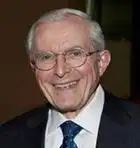Summing Up
It was announced today (November 27) that Jeffrey Immelt, 44-year-old president and CEO of GE Medical Systems, will succeed Jack Welch as CEO of GE. A CNN online news flash stated that he is "a natural leader," "ideally suited to lead GE for many years," possessing an imposing "physical presence," "intellectual strength," a "natural sense of humor," and the "ability to present himself well to both Wall Street and the average worker."
Given this, you may conclude that our discussion of the past several weeks about the important qualities and capabilities to be sought in a successor to Welch is moot. But as in any good Harvard Business School case discussion, hindsight provides neither a guide to the future nor necessarily the best response. With that as background, what was your advice (very timely, as it turns out) concerning GE's choice of a possible successor to Jack Welch?
In your responses there was little of the talk heard in the media about whether it will be possible for someone to successfully succeed Welch. The prevailing opinion was that the kind of leadership that Welch has provided and the values he has instilled in GE's management—speed, simplicity, self-confidence, and boundarylessness—are uniquely suited to the preparation of a successor who can take GE in new directions under the umbrella of the same set of values and the behaviors they inspire.
It was assumed that the successor would be named from within the organization. Only one respondent, who for some reason chose to remain anonymous, suggested that "new talent offers new perspectives and insights that insiders cannot see."
As for qualities and capabilities sought in Welch's successor, the discussion yielded mostly the usual suspects. For example, qualities cited (other than the ability to listen, learn, and teach; a vision of the future; and the ability to inspire confidence, which were mentioned in the article) included "energy, dynamism ... tremendous stamina ... a sound understanding of the principles of 'change,'" and a working knowledge of "new" economics, in the opinion of Devdip Ganguli. Roberto Rodriguez added "global thinking" and "entrepreneurial spirit" to the list.
While citing the need for qualities such as "a primal understanding of human nature" and "an intensely human soul that champions dignity and freedom of spirit," Arjun Balakrishnan also pointed out the need for someone with "a solid grasp of big-picture forces ... the ability to understand gender (and) generational diversity ... (who) seeks to surround herself/himself with competent people who are smarter than her/him ... (and who) wields power ... with responsibility and not ego."
In total, that's a tall order. Jeffrey Immelt, are you up to it?
Original Article
GE will have a new CEO soon, regardless of whether Jack Welch keeps the job of chairman a bit beyond April 2001. With that in mind, questions arise about what capabilities GE's board should seek in Welch's replacement.
Are there clues in the way Welch was selected in 1980?
At the time, GE was led by Reg Jones, by any measure a tough act to follow. The company's performance had been strong and Jones—suave, dispassionate, and an accountant by background—had been named in several polls as the most outstanding CEO in America as well as a true business statesman in his efforts to build bridges between government and business.
He chose a novel and peculiar way of selecting his successor, asking each candidate in turn whom they would recommend as CEO if the candidate and Jones were both killed in a plane crash. In a second round of interviews, he gave the candidates the opportunity to name themselves as well as other candidates.
As a result of these double rounds of interviews, Jones chose Welch, someone who could not have been more unlike Jones in demeanor and background, someone who had made his name in one of GE's lesser ventures, plastics, and yet someone who obviously had the qualities to lead GE through massive change to the top of the world in terms of corporate value.
Last year I completed a case series on GE, titled "GE ... We Bring Good Things to Life," in which the issue of CEO succession was raised in the last of the two cases. In classes in which I've used the materials for discussion, executive participants have proposed many criteria for the selection of a new CEO. They include personal qualities such as stamina; the abilities to listen, learn, and teach; a vision of the future; and the ability to inspire confidence.
And they include what we might call capabilities, such as comfort with "new economy" ways of doing business; a global outlook; a willingness and ability to partner; and familiarity with various types of businesses, particularly in the service sector. Too often, they have reflected what GE (and other organizations) needed in the past, not the future.
If you were a member of GE's board, what two or three personal qualities and two or three capabilities would be at the top of your list in selecting a successor to Jack Welch? Because GE has had only eight CEOs in its proud 122-year history, beginning with Thomas Alva Edison, you should probably assume that this person will be around awhile.

